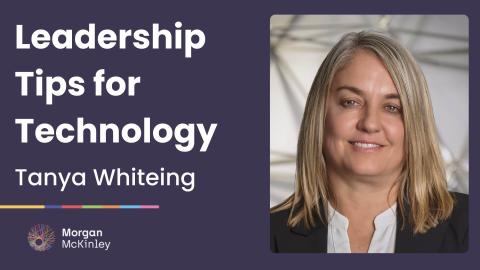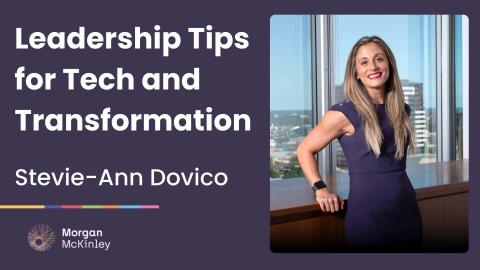How To Create An Effective Candidate Experience And Why It Matters To Your Hiring

People love to talk about when they’ve had a good experience. They love - even more - talking about bad experiences.
For example, you can catch numerous flights that go ahead as planned, but the one time you’re delayed, staff were rude or there was a rowdy group of disruptive passengers on board, you can be sure that’s the first thing you’ll bring up whenever discussing flying.
It's likely to tarnish your perception of that particular airline, and your opinion can in turn impact the views of the people you tell.

Now think of this in the context of your candidate experience.
All it takes is for one person to have a poor experience, they tell a few of their friends and before you know it, your brand has a poor reputation amongst a group of people who have had no first-hand interaction with you.
In a competitive hiring climate - when job seekers seem to hold all the cards - ensuring that your candidate experience is effective and your overall recruitment process is seamless should be one of your highest priorities.
From their very first interaction with you (either by applying to one of your job adverts or through someone reaching out to them), you want to leave a positive impression if you are going to stand any chance of hiring the best talent.
It will involve a bit of a mindset shift. Get it right, and you will see significant long-term gains for your employer brand and the image of your company.
- What is a candidate experience?
- Why is your candidate experience so important?
- How can you create a great candidate experience?
- Measuring the success of your candidate experience
- Candidate experience statistics you should know
- Examples of companies with great candidate experiences
What is a candidate experience?
Whilst many people see the interviews as the most important contributor to a successful recruitment process, it is the entire experience which will sway whether or not you successfully hire someone.
But what is the candidate experience? Well, it’s how an individual who applies to work for you feels about your business after participating in your hiring process - whether they get the job, or not.
Why is your candidate experience so important?
A ‘bad’ experience can result in you not being able to hire the person you want, culminating in a loss of respect for you as an employer, and your business as a whole.
On the other hand, a ‘good’ experience normally results in those who apply seeing themselves happily working for your company, whether they are successful or not - this can be hugely useful for when you have future hiring requirements!
But an ‘amazing’ one will leave such an impression that they will go and tell everyone about how brilliant the recruitment process was. Before they’ve even become an employee, they are an advocate and positive spokesperson for your company.
80–90% of talent say a positive or negative candidate experience can change their minds about a role or company (Recruiting Brief).
“It’s very hard to hire the best people at the moment. You need to plan for success and work with all the resources you have at your disposal to get results.”
Dominic Bareham, Managing Director of Morgan McKinley Australia
How can you create a great candidate experience?
There is definitely a lot to think about. If you are partnering with a recruitment agency on your hiring projects, then they will help with a fair chunk of it.
Whether you are working with recruiters or not, here are 11 things you can consider to make your candidate experience even better than it already is…
1. Write clear and concise job descriptions:
A well written job description will not only help you attract talented professionals, but it will also promote your company’s brand and allow you to build a strong talent pool of potential candidates for the future. Being transparent around the salary you are willing to offer is also vital.
2. Be up-front and clear about what the process will involve and how long it will take:
When a process is vague, the timetable drifts, or a hiring organisation is not transparent about other applicants (particularly internal) being in play, jobseekers will often quickly lose engagement and interest.
3. Make use of recruiting technologies:
There are plenty of tools that can be used to streamline your hiring process to give a smooth candidate experience.
For example, 65% of job seekers say they never or rarely receive notice of their application status (Lever) - if you fall into that group, you could benefit from implementing software that automates the distribution of notifications to candidates about whether their application has progressed.
4. Limit the number of stages in your interview process:
If you can find out what you require in as few stages as possible, you will be able to progress quicker and reduce the risk of losing candidates due to a long hiring process.

5. Conduct the best possible interview:
Knowing how to conduct an interview properly is integral to leaving a positive impression on your prospective new employee. It is often the person conducting the interview who has the biggest impact on this.
6. Give an accurate representation of your company in the interviews:
The most successful processes employ a panel that is really representative of your organisation as it allows the interviewee to visualise working for you. Having a strong pitch about your company and the value the right person will bring should not be underestimated.
“In a severely candidate short market you and your teams need to be able to to sell your organisations.”
Lionel Kaidatzis, Managing Director of Morgan McKinley Japan
7. Challenge their skills relevant to the role:
Job seekers want to be thoroughly tested so they have the opportunity to flex their skills and experience. Make sure that you have a clear part of the interview set aside for establishing their technical compatibility. Challenging people can often bring out the best in them.
8. Follow up when you say you will:
The longer you try to keep the candidate warm, the more likely they are to lose interest. They will know that you're interviewing others and that you're potentially using them as a backup option. The longer you leave it, the higher the likelihood that another company will make them an offer.
“What surprises me is how poor feedback to candidates is following interviews. Not having the courtesy to respond to applicants does not bode well for how an organisation respects its employees.”
Simon Woodthorpe, Program Director
9. Transparency about where they stand is key:
If there are any ‘close seconds’ who aren’t quite what you want but you don’t want to fully cut ties, tell them about the move to make a job offer to someone else and be honest about future opportunities. If an applicant is declined, try and give objective feedback as to why they were unsuccessful.
‘Ghosting’ your candidates (in other words never following up with them) is not acceptable and reflects poorly on your company. Even if it’s bad news, they deserve to know.
10. Move fast to make the offer:
Once you have made the decision to make a job offer to one of your applicants, make sure you produce that offer in a timely manner. Any unnecessary delays mean you run the risk of losing your preferred applicant, and potentially having to restart your process from the beginning.
In our global research of 4,134 professionals, 48% said that they have rejected a job offer at some point of their careers because it took too long to be made.
11. Onboarding is still part of the candidate experience:
It integrates the individual with your organisation’s culture and supplies them with the right tools and information they need to become a productive member of the team from day one. This increases the likelihood of you being able to retain your new employees by making them feel valued and engaged - this reduces unnecessary spend on hiring a replacement.
Bonus: Request feedback throughout the entire process to measure the success of your candidate experience
It’s important that you give feedback to your candidates, but likewise you should be open to your candidates giving you feedback about the recruitment process.
It’s often overlooked:
78% of job seekers report never having been asked for feedback on their candidate experience (Lever).
But it’s simple and hugely beneficial. It can be done in a follow up survey, or you could even call them up for verbal feedback once the process has ended - that’s a more personal touch.
They will appreciate this honest and transparent approach and it will help to solidify a positive impression of you as an employer. Not only this, but you will be able to measure the success of your candidate experience due to the levels of feedback you receive.
Don’t be disheartened if you get some negative comments, it’s almost inevitable. Take that feedback on board and use it to make your candidate experience even better for future hiring projects!
Candidate experience statistics you should know
If you’re still not entirely convinced about the importance of your candidate experience, here are a few statistics that might sway you…
- Nearly 4 in 5 candidates (78%) say the overall candidate experience they receive is an indicator of how a company values its people (Career Builder)
- Nearly 60% of job seekers have had a poor candidate experience, and 72% have shared their experience on online employer review sites such as Glassdoor.com (LinkedIn)
- Talent is four times more likely to consider your company in the future if you offer constructive feedback (Lever)
- Only 46% of employers report making regular improvements to the recruitment processes (at least every six months) that affect the candidate experience (CareerArc)
Examples of companies with great candidate experiences
And if you’re still looking for a bit of inspiration on how to create an experience that stands out, here are a few companies that are doing it a bit differently:
- McKinsey: The globally known strategy and management consulting firm uses an interactive game to test their candidates’ problem-solving abilities.
- Airbnb: Visualise every step of the candidate journey in a storyboard, giving applicants a full overview of what to expect and when.
- DocuSign: They recognise that the recruitment process is a two-way street. So they constantly ask for thorough feedback from candidates to help improve their process.
- Unilever: Places more emphasis on the soft skills, and they get applicants to participate in behavioural assessment games to evaluate their personal traits.
- Lloyd’s Banking Group: Has developed a virtual reality tool in which candidates are exposed to a variety of workplace situations and puzzles that would be impossible to replicate in the usual interviewing style.
To conclude…
The main takeaway from all of the above 11 (plus the bonus) considerations is that empathy is key to establishing a great candidate experience. You don’t know the full extent of each applicant’s situation, so by being polite, kind and treating them respectfully, you stand an excellent chance of leaving a positive impression.
“Talent is no longer impressed with ping pong tables and beer on tap. Hiring with a little more human kindness and compassion should be top of the agenda.”
Robert Sheffield, Managing Director of Morgan McKinley Greater China
Get into the routine of showing respect for each of your candidate’s time and effort throughout the hiring experience. This display of appreciation will do wonders for your employer brand and send you well on the way to having a brilliant candidate experience.














